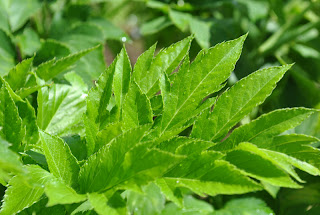As the Baby Boomers age, many are finding their health, vitality and healthcare costs are not as they would desire. Most health conditions can be alleviated through diet, without the side effects associated with drugs but most people are unaware that the choice exists.
Leave your drugs in the chemist's pot if you can heal the patient with food. - Hippocrates
"The U.S. has the most drug use of any country, yet in terms of longevity, the people in 17 countries in Europe and Asia live longer.
Prescription drug use in Europe averages about 46% less than in the U.S. In Japan, it is almost 80% less; and in China, nearly 95% less. However, the use of natural medicines is proportionally higher in Europe and Asia, with the Japanese and Chinese nearing total devotion to medicines derived from plants."
Source: Gero Vital International
He that takes medicine and neglects diet, wastes the skill of the physician. - Chinese Proverb
"In rural China, doctors are paid only when you are well. If you get sick, you don't pay them. As you can see, they have a vested interest in keeping you healthy. That is probably the reason the Chinese live longer and are healthier. Too bad we don't have that system here." - Ibid.
Western science is now investigating plants for their medicinal uses, though often with the mindset of extracting a compound from which to make a drug instead of looking at the whole plant and the interaction of the nutrients.
"Let food be thy medicine and let medicine be thy food." - Hippocrates, the Father of Medicine (460-377 B.C.)
Chinese Nutrition differs from Western nutrition in that it does not talk about the biochemical nature of food. Rather, Chinese Nutrition deals on an energetic level to which BALANCE is the KEY.
Overeating is a very common imbalance which causes many diseases. By slowly chewing one's food properly, the body will tell you when to stop. Slow eating with a relaxed mind is essential to good digestion and assimilation of nutrients.
Nutrition, Health and the Environment were studied, under the direction of T. Colin Campbell of Cornell University, of 6,500 people from 65 counties across China from 1983 - 1988 and published in 1990 as "Diet, Lifestyle and Mortality in China" . The results suggested that the healthiest diets in the world contain a minimum of 80 - 90% plant foods. Those in the countryside who get only 10 - 15% of their calories and 7% of their total protein from animal products had lower incidence of heart disease, colon cancer, and osteoporosis. The study showed that when the rural dweller moved to the city and adopted the city lifestyle and higher fat diet (30%), the diseases increased.
When diet is wrong medicine is of no use.
When diet is correct medicine is of no need.
- Ancient Ayurvedic Proverb
The Western approach to diseases is to kill the bacteria and suppress the symptoms, thus driving the disease deeper into the body. The Chinese way supports the body with tonifying foods or herbs to reinforce the body's healing energy. Remember that "The BODY is the BEST HEALER."
Prevention of Disease
The use of herbs as food has a long history in China. The first Chinese Materia Medica was written 3000-4000 years ago, categorizes herbs into three groups.
The first group was called "food herbs", which were eaten as a part of the diet for nourishing, health maintenance and disease prevention. These herbs were called immortal foods - producing effects that rejuvenate health, prolong life, restore youth, and increase mental clarity. Ashitaba belongs to food herbs that can be used over a long period of time to preserve good health.
The first group was called "food herbs", which were eaten as a part of the diet for nourishing, health maintenance and disease prevention. These herbs were called immortal foods - producing effects that rejuvenate health, prolong life, restore youth, and increase mental clarity. Ashitaba belongs to food herbs that can be used over a long period of time to preserve good health.

No comments:
Post a Comment